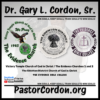Bible in Prison, But Not in School? Let’s Talk About It.
You’ve probably seen the statement floating around social media:
“SADLY, YOU CAN READ A BIBLE IN PRISON BUT NOT IN SCHOOL! PERHAPS IF THEY READ IT IN SCHOOL, THEY WOULDN’T BE IN PRISON.”
It’s catchy. It’s emotional. And on the surface, it seems to make a strong point about morality, education, and incarceration.
But here’s the problem: It’s misleading. And more importantly, it distracts us from the real issues that put people behind bars in the first place.
Let’s break it down.
⸻
1. No — The Bible Is Not Banned in Schools
One of the biggest misconceptions is that the Bible is somehow forbidden in public education. That’s simply not true.
• Students have the right to bring and read their Bibles in school.
• They can pray, read Scripture during free time, and even start Bible clubs.
• What the Constitution does not allow is school officials leading or endorsing religious activity.
In Abington School District v. Schempp (1963), the U.S. Supreme Court ruled against state-sponsored Bible readings. But they did not ban the Bible from schools.
So, yes — you can read the Bible in school. You just can’t have a teacher make you read it.
⸻
2. The Causes of Incarceration Go Way Beyond a Lack of Bible Reading
While the Word of God is powerful and transformative, we must be careful not to oversimplify the very real, very painful realities that lead to incarceration.
Many people aren’t in prison because they didn’t read a Bible. They’re there because of systemic injustice — often from a young age.
Consider the Facts:
• Redlining destroyed Black wealth-building and created generational poverty.
• Underfunded schools in minority communities lack resources, support, and teachers.
• The school-to-prison pipeline pushes Black and Brown students out of the classroom and into the courtroom.
• Racial profiling and over-policing result in disproportionate arrests and convictions.
According to the U.S. Department of Education, Black students are 3 times more likely to be suspended than white students — starting as early as kindergarten.
Black Americans make up 13% of the population, but account for 53% of all wrongful convictions (National Registry of Exonerations).
That’s not a Bible issue — that’s a justice issue.
⸻
3. Reading the Bible Doesn’t Fix a Broken System — But It Can Heal the Heart
Let’s be clear: God’s Word saves. Countless men and women have encountered Jesus behind prison walls and had their lives forever changed. I praise God for that.
But it’s not fair — or biblical — to say that people are in prison because they didn’t read the Bible in school.
Some of them did.
Some of them were raised in church, carried Bibles, and knew Scripture — and still ended up in cycles of trauma, poverty, and injustice that our society refuses to fix.
⸻
4. What We Should Be Saying Instead
Here’s a better version of the original message:
“It’s powerful to see the Bible changing lives in prison. Imagine the impact if our schools, homes, and communities worked together to nurture not just faith — but justice, opportunity, and dignity for every child.”
That’s where real change happens: When we address broken systems AND preach the saving gospel of Jesus Christ.
⸻
Let’s Do Both
Let’s fight to keep the door open for spiritual development in school — not by forcing religion, but by protecting the rights of students to express their faith.
And let’s also fight against:
• Mass incarceration
• Racial inequality
• Poverty
• Broken school systems
• Biased policing
Because Jesus not only read the Scriptures — He flipped tables when the system failed the people.
⸻
Let’s preach Christ AND pursue justice. Let’s offer prayer AND policy. Let’s teach Scripture AND confront sin in the systems around us.
That’s the kind of gospel that sets people free.
⸻
